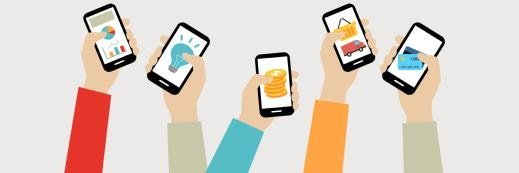
Anna Frajtova - Fotolia
Philippines expands tax payments with mobile system
The Philippines tax office is enabling people to access more services via their mobile phones
The Philippines’ tax office, the Bureau of Internal Revenue (BIR), has expanded the capability of its electronic tax filing and payment system, GCash.
GCash is a mobile payment service that was first introduced for tax payments in 2005, when it enabled money transfer and bill payments through text messages. A subsequent update included a mobile application that enabled the filing of five BIR forms and payment of tax amounting to PHP10,000 (£146).
It has now been expanded to allow payments for all types of tax. For example, internal revenue taxes can be paid to the BIR through 45 forms.
GCash charges a service fee that ranges from PHP10 up to 1.2% of the amount payable, for amounts above PHP10,000.
GCash uses the mobile phone as a virtual wallet for money transfers and access to financial services. Currently, the tax forms for GCash are available only through the GCash Android app, but there are plans to support new forms through the GCash iOS app.
The service is operated by G-Xchange, which is owned by Globe Telecom subsidiary Mynt. Globe Telecom supplies financial technology through its telecommunications infrastructure, mobile money platform and micro financing expertise.
GCash president Albert Tinio said the technology helps the government to utilise mobile money for collections and disbursements of social welfare benefits, government fees and taxes. “By limiting face-to-face transactions, GCash is able to increase access to government services and reduce potential leakages, especially in hard-to-reach areas,” he said.
Mobile money has been widely deployed in south-east Asia, said Sandy Shen, research director with Gartner’s e-commerce and mobile payments team.
Read more about payment technology in south-east Asia
- Myanmar’s central bank has released additional rules on mobile financial services that lay the foundation for efficient and secure mobile financial services in Myanmar.
- Singapore is the first nation in the Asean region to get the Apple and Samsung mobile payment services.
- South-east Asian retailers say securing customer payments is a major challenge as new payment technology is forced on them by market and consumer pressure.
“The Philippines is one of the earliest countries to launch [mobile money] services, and has developed a rich ecosystem to enable a lot of payment-related services,” she said. “So, tax payment is a new addition to the long list of services already available.
“This, of course, makes it easier for people, especially those without access to the financial infrastructure, to pay tax.”
Without a mobile money option, Philippines taxpayers make payments by cash or cheque, or at banks accredited by the BIR.
Shen said effective tax collection not only depends on the payment method, but on the awareness and willingness of citizens. “A popular payment method just takes away some technical barriers [to pay tax],” she added.










